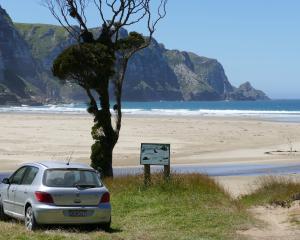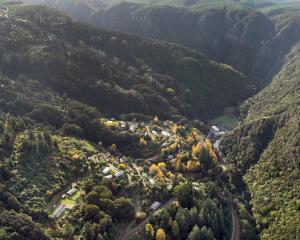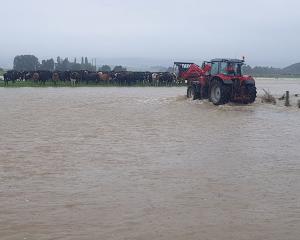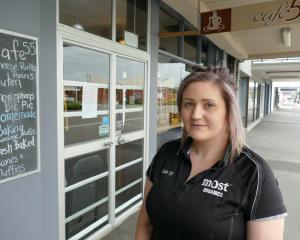Clutha residents are voicing concern about proposed sewerage upgrades and funding options in Benhar and Tokoiti, lodging nearly seven times more submissions about the plans than they did about the council's annual plan.
Almost 800 submissions were made on the proposed Benhar and Tokoiti sewerage schemes - townships with a total of about 74 properties - and ratepayers are split over who should pay for it.
Submissions were received from ratepayers across the district, with all townships represented, along with some from ratepayers who live outside the Clutha district and Otago.
Earlier this year, 116 submissions were made to the Clutha District Council's 2011-12 annual plan, including 53 about the sewerage schemes.
Under the council's existing rating policy, the cost of building the schemes would mean an annual sewerage rate of about $1856 per property for Benhar and $2206 for Tokoiti, which residents maintain will be an unaffordable burden on them, given low average incomes and a small population/ratepayer base to share the costs.
The Benhar and Tokoiti communities have only 44 and 30 properties respectively. Where boundary lines would be drawn for the sewerage schemes remain unclear, as some properties on the outskirts of the communities are not part of any scheme.
During this year's annual plan process, the Clutha District Council developed some alternative funding proposals to help spread costs.
Of the 795 submissions received, 44% supported outcome 2, which would mean Benhar and Tokoiti rates were on a par with other townships, and 33% supported outcome 1, the status quo.
The two townships - Benhar is near Balclutha and Tokoiti is near Milton - have no public sewerage systems. Most properties have septic tank systems but an upgrade to modern standards is required to prevent issues such as sewage flowing on to neighbouring properties or into waterways, and to meet Otago Regional Council consent conditions.
Following community consultation, a pressurised reticulation system is planned for Benhar, at a cost of about $1 million, and a gravity system for Tokoiti, costing $671,000.
Benhar's sewage will be pumped into Balclutha's scheme, and Tokoiti's into Milton's.
The council's preferred funding option would see about 52% of the capital costs of establishing the new schemes spread over all other sewerage ratepayers throughout the district.
In 2009, the council began capping (known as harmonisation) existing sewerage and urban water supply rates at 25% above the average cost, resulting in a greater similarity in pricing between communities.
A hearing will be held for verbal submissions at 5.30pm tomorrow night. The council's final decision will be made on December 15.
FUNDING PROPOSALS
The Clutha District Council's three proposals for funding Benhar and Tokoiti sewerage schemes:
1 (status quo, 10% assistance): Benhar and Tokoiti pay the majority (90%) of the costs of building their sewerage schemes. Clutha ratepayers help with remainder (10%).
2 (about 50% assistance): Provide financial assistance to limit rates increase for Benhar and Tokoiti to about $1000, making their total rates about same as other small towns in district. It would also be likely to mean an increase of between $12 and $15 for other sewerage ratepayers and $27 for Balclutha. Council identified this as preferred funding option during annual plan process.
3 (about 97% assistance): Financial assistance provided to Benhar and Tokoiti at a level where their total sewer rates would be similar to other sewer rates in the district.







